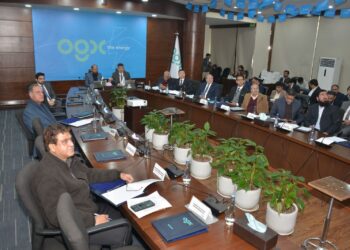Overview: Legislative Action Hinges on Digital Infrastructure
ISLAMABAD – In a pivotal development in Pakistan’s economic governance, the National Assembly’s Standing Committee on Finance has made it clear that proposed amendments imposing a ban on certain financial transactions will only move forward once the Federal Board of Revenue (FBR) establishes a reliable and independent online system for asset verification and income assessment.
This stance follows Finance Minister Muhammad Aurangzeb’s cautionary statement that failure to pass this legislation could compel the government to introduce additional tax measures worth Rs500 billion to meet revenue targets and uphold commitments to international lenders, including the International Monetary Fund (IMF).
FBR’s Digital System: The Key Condition for Financial Transaction Ban
During a session of the finance committee, Chairman Syed Naveed Qamar emphasized that Parliament will not greenlight any amendments curbing financial transactions until lawmakers are fully convinced that the FBR has developed a robust, independent, and secure digital platform.
“The system must be reliable and capable of verifying individuals’ purchasing power and asset history,” said Qamar, adding that this is essential to avoid targeting individuals unjustly and to prevent tax evasion by high-income groups.
The government’s proposed legislation would restrict purchases of high-value assets—such as automobiles and real estate plots—to individuals who have sufficient declared income and legitimate banking activity.
This move is aimed at broadening the tax net, discouraging the use of undisclosed wealth for asset purchases, and aligning Pakistan’s tax policy with global standards of financial transparency.
Military Compensation: Special Relief Announced for Armed Forces
In a parallel announcement, Secretary Finance Imdadullah Bosal told the committee that the government has approved special relief allowances for the armed forces, recognizing their strategic role in safeguarding the country.
- Officers of the armed forces will receive a 50% relief allowance on their basic pay.
- Junior Commissioned Officers and soldiers will receive a 20% relief allowance.
This measure is being rolled out against the backdrop of what the government described as increased operational responsibilities, including defense preparedness amid recent tensions with India.
Defense and Civilian Budget Allocations
Finance Minister Muhammad Aurangzeb also highlighted that the defense budget has been increased to Rs0.255 billion (interpreted as Rs255 billion) for the upcoming fiscal year, in line with Pakistan’s strategic priorities.
Additionally, the government announced several fiscal incentives for the civilian workforce:
- 10% salary increase for civilian government employees.
- 7% increase in pension for retired employees.
- 30% disparity allowance for government staff working in basic pay scales (BPS) 1 to 16.
These budgetary allocations reflect efforts to ease the burden of inflation on salaried individuals while maintaining morale within key public institutions.
IMF Conditionalities and Structural Budget Reforms
Finance Minister Aurangzeb reiterated that the IMF’s ongoing support is contingent upon Pakistan withdrawing tax exemptions across multiple sectors and continuing with structural economic reforms. The current fiscal strategy focuses on:
- Export promotion through market liberalization.
- Energy sector reforms to reduce circular debt.
- Reduction of import tariffs to make local industries more competitive globally.
Aurangzeb added that institutions like the Utility Stores Corporation (USC) and Pakistan Agriculture Storage and Services Corporation (PASSCO) are slated for dissolution as part of the downsizing of underperforming government bodies.
Debate Over FBR’s Expanded Powers and Accountability
During the committee meeting, Opposition Leader Omar Ayub Khan expressed serious concerns about a controversial budget proposal that grants the FBR the authority to arrest individuals involved in tax disputes without court authorization.
“This move could lead to abuse of power and undermine investor confidence,” argued Ayub, demanding that the finance minister retract the proposal.
The government has justified this provision as necessary for tax enforcement, especially in the face of chronic under-reporting of income by high-net-worth individuals and certain business sectors.
Climate Funding and Revenue Assumptions
According to Finance Secretary Imdadullah Bosal, the budget’s net revenue projections assume a Rs2.4 trillion profit from the State Bank of Pakistan (SBP). This sizable contribution is expected to play a key role in financing the federal budget.
In addition, Pakistan is set to receive Rs106 billion under the IMF’s climate financing arrangement, a relatively new initiative designed to assist developing countries in managing climate-related fiscal risks.
Foreign Financing: $1 Billion in Syndicated Loans Expected
To meet its external financing requirements, the government also plans to raise $1 billion through syndicated financing loans before the end of June 2025. This borrowing will be backed by guarantees from the Asian Development Bank (ADB).
This form of financing is critical to maintaining the country’s foreign exchange reserves, especially amid volatility in global commodity prices and limited access to traditional credit markets.
Agricultural Sector Concerns and Pension Taxation Proposals
PTI MNA Usama Mela used the occasion to voice concerns over discrimination against farmers, urging the government to allow unrestricted export of agricultural commodities to support the rural economy and promote agro-based foreign exchange earnings.
Mela also suggested a progressive tax on pensions, recommending that monthly pensions above Rs400,000 be taxed. Currently, the government’s budget proposal includes a 5% tax on pensions above Rs833,000 per month, sparking debate over equitable taxation across income brackets.
Conclusion: Fiscal Prudence, Political Sensitivities, and Economic Reform
The Standing Committee on Finance’s insistence on making transaction bans contingent upon a fully functional FBR digital system illustrates the delicate balance between reform and public trust. The government must convince Parliament and the public that these measures will ensure fairness, accountability, and effective tax administration—without enabling harassment or overreach.
As Pakistan prepares to implement a highly scrutinized budget under IMF supervision, a combination of military allowances, civil service pay raises, defense enhancements, and broad structural reforms reflects the government’s attempt to navigate economic recovery while maintaining political stability.
Whether the government can deliver on these promises depends on both its administrative capacity and the transparency and efficiency of institutions like the FBR, which remain at the heart of Pakistan’s fiscal future.

























